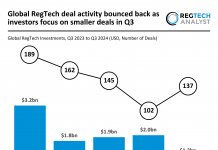Neustar has launched a security council to provide insights on cyber defense strategies and best practices in North America.
The launch of the Neustar International Security Council (NISC) in North America is looking to equip security professionals with up-to-date exclusive information on relevant cybersecurity issues.
Following the success of NISC in EMEA, the North American council will be composed of an elite group of select cyber security leaders across key industries and companies, and will be spearheaded by Rodney Joffe, Neustar senior vice president and fellow.
“Security attacks are rarely isolated to one region, a fact that drives the need to understand how the threat of an attack increases and changes over time,” shared Rodney Joffe. “By expanding NISC to North America we are one step closer to fulfilling our goal of providing security professionals with tangible insights on the international security landscape and supplying IT decision-makers with key research information to aid in making vital cybersecurity decisions.”
Members are granted exclusive access to face-to-face meetings, including an annual summit, quarterly thought leadership seminars and regional roundtables. Members also gain access to security specialists from specific sectors, such as law enforcement and government. The NISC membership also includes access to a bi-monthly industry research report, which will now be garnered from surveying over 300 security professionals across North America and five EMEA markets.
The NISC in EMEA found that 80% of organisations have an interest in using cryptocurrencies, such as bitcoin, for transactions. However, 80% of respondents admitted they were aware of the increased risk of Distributed Denial of Service (DDoS) attacks it could bring.
To ensure that they would not fall victim to memcached reflection attacks, organisations admitted to taking a number of precautions, including installing firewalls (62%), consulting DDoS mitigation providers and security professionals (53%), limiting external traffic to ports (38%) and installing the latest memcached 1.5.6 version, which disables UDP protocol (33%).
It also found that 73 percent of respondents said that recent high-profile incidents, such as the Equifax breach and Yahoo’s admission of a widening breach, have affected the way they protect their business. Some plan to change their infrastructure, expand teams and also outsource specific issues to IT professionals, in addition to more traditional strategies, such as improving firewalls and endpoint AV protection.
Copyright © 2018 RegTech Analyst
Copyright © 2018 RegTech Analyst






